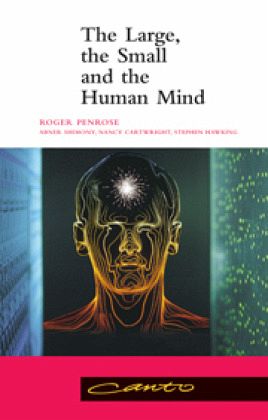
The Large, the Small and the Human Mind
Versandkostenfrei!
Versandfertig in 2-4 Wochen
26,99 €
inkl. MwSt.

PAYBACK Punkte
13 °P sammeln!
Roger Penrose's original and provocative ideas about the large-scale physics of the Universe, the small-scale world of quantum physics and the physics of the mind have been the subject of controversy and discussion. These ideas were proposed in his best-selling books The Emperor's New Mind and Shadows of the Mind. In this book, he summarises and updates his current thinking in these complex areas to present a masterful summary of those areas of physics in which he feels there are major unresolved problems. Through this, he introduces radically new concepts which he believes will be fruitful in...
Roger Penrose's original and provocative ideas about the large-scale physics of the Universe, the small-scale world of quantum physics and the physics of the mind have been the subject of controversy and discussion. These ideas were proposed in his best-selling books The Emperor's New Mind and Shadows of the Mind. In this book, he summarises and updates his current thinking in these complex areas to present a masterful summary of those areas of physics in which he feels there are major unresolved problems. Through this, he introduces radically new concepts which he believes will be fruitful in understanding the workings of the brain and the nature of the human mind. These ideas are challenged by three distinguished experts from different backgrounds: Abner Shimony and Nancy Cartwright as philosophers of science and Stephen Hawking as a theoretical physicist and cosmologist. Roger Penrose concludes with a response to their thought-provoking criticisms.




